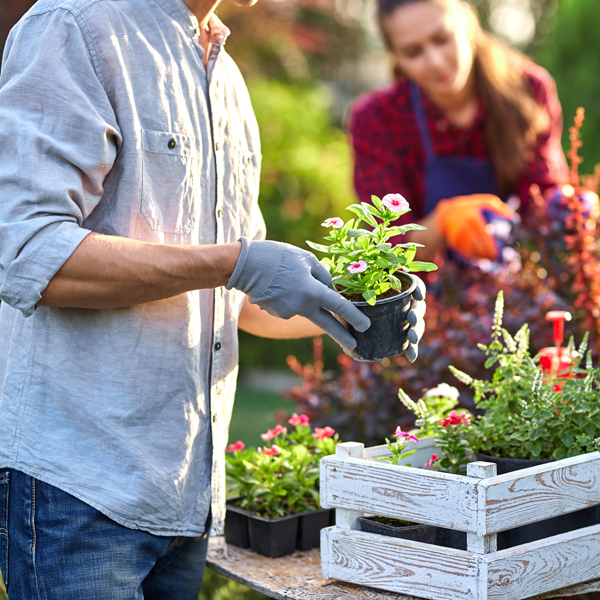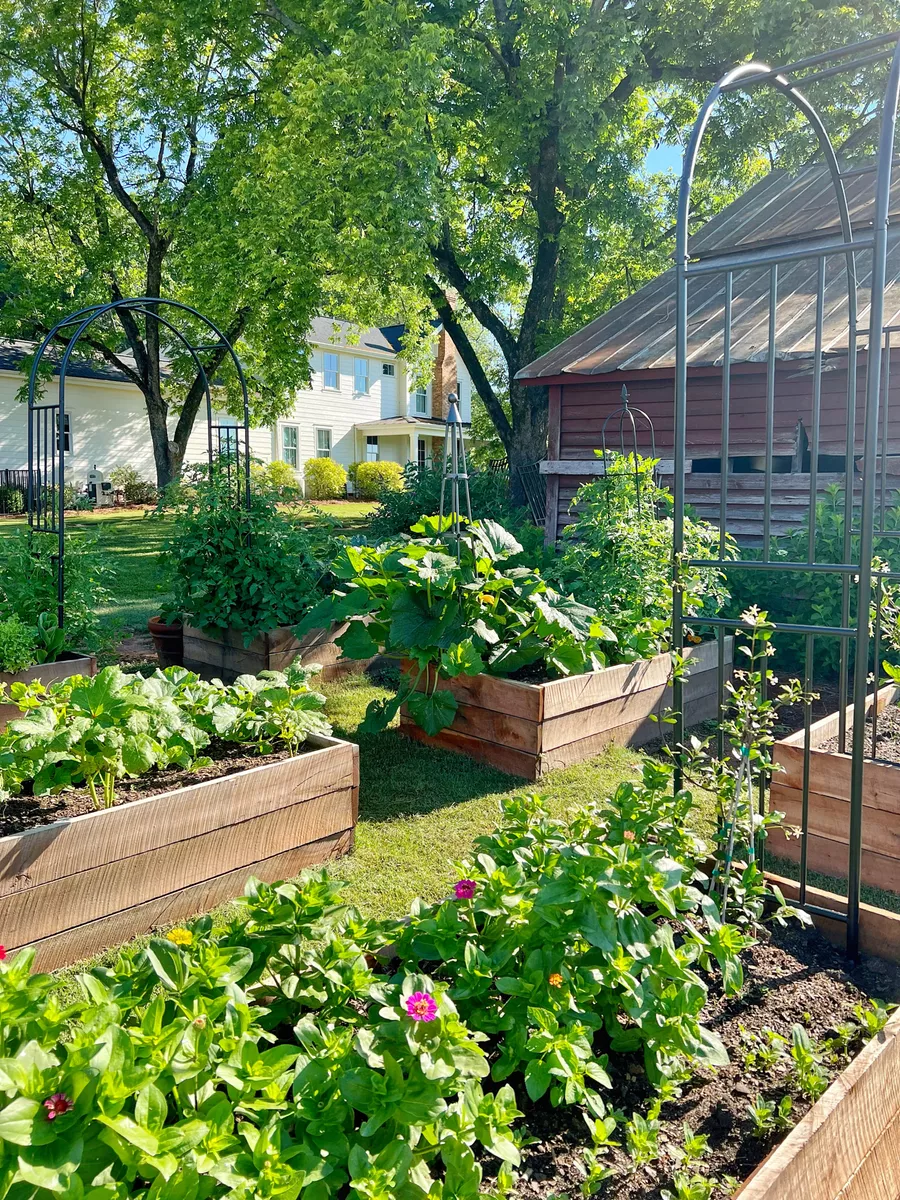Understanding the Various Kinds Of Gardening and Exactly How They Add to a Healthier Way Of Life and Environment

Benefits of Vegetable Gardening
Lots of people are significantly identifying the myriad benefits of vegetable gardening as a vital part of a much healthier lifestyle. Engaging in vegetable gardening provides various physical wellness advantages, including increased exercise, which enhances cardiovascular health and advertises overall fitness. The act of planting, weeding, and harvesting requires movement and can aid battle sedentary habits, adding to weight management and improved muscular tissue tone.
In addition, growing one's own vegetables substantially improves nutritional high quality. Organic fruit and vegetables is frequently fresher and more nutrient-dense compared to store-bought choices, as it can be taken in soon after harvest. This availability encourages a greater consumption of vegetables and fruits, which are important for stopping chronic illness.
Additionally, veggie horticulture fosters psychological health by giving a restorative electrical outlet for stress and anxiety alleviation and relaxation. The act of often tending to plants can be reflective, enabling people to attach with nature and leave the stress of every day life. The lasting method of expanding one's own food lowers dependence on business farming, adding to environmental preservation and promoting biodiversity. Jointly, these benefits highlight the importance of veggie horticulture as a keystone of a much healthier lifestyle.
Checking Out Flower Gardening

Along with visual benefits, flower horticulture sustains local ecological communities. Many flowering plants draw in pollinators, such as and butterflies, which are crucial for maintaining biodiversity. The existence of diverse plants can likewise enhance dirt health, as various plants contribute to nutrition cycling and boost dirt framework.
Moreover, flowers can play a considerable function in advertising lasting methods. Many gardeners opt for native or drought-resistant types, which need less water and very little chemical inputs. This approach not just benefits the environment but also encourages responsible horticulture behaviors.
Inevitably, blossom horticulture works as an essential element of an alternative horticulture strategy. Gardening. By growing appeal and supporting regional communities, it harmonizes with veggie gardening and emphasizes the relevance of supporting both our physical and mental well-being through nature
Container Gardening Benefits
Container gardening offers numerous benefits that make it an enticing choice for both beginner and experienced gardeners. Among the main benefits is its versatility; containers can be put on outdoor patios, verandas, or also inside your home, straight from the source allowing for horticulture in areas with limited ground accessibility. This versatility allows individuals in city atmospheres or those with small backyards to cultivate plants effectively.
In addition, container horticulture provides boosted control over soil top quality and wetness degrees. Gardeners can pick details soil blends to enhance plant wellness and reduce concerns like weeds and bugs. The mobility of containers additionally allows for very easy relocation to take full advantage of sunlight exposure or shield plants from harsh climate.
Moreover, container yards can be visually pleasing, supplying a chance for creative thinking in style. Gardening. They can act as ornamental aspects that improve exterior or interior spaces while promoting biodiversity by bring in pollinators
Lastly, container gardening can read add to a much healthier lifestyle by motivating physical task, as it commonly entails lifting, planting, and preserving plants. On the whole, the advantages of container horticulture make it an accessible and gratifying method for those looking for to boost their lifestyle and environment.
The Increase of Upright Horticulture
As city rooms become increasingly crowded, the pattern of upright horticulture has actually taken off, allowing individuals to maximize their gardening capacity in restricted locations. This cutting-edge strategy entails expanding plants in upright frameworks, such as wall-mounted planters, trellises, or specialized vertical garden systems. The appeal of vertical gardening exists not just in its reliable use room yet additionally in its visual payment to metropolitan atmospheres, transforming bare wall surfaces right into rich eco-friendly landscapes.
Vertical gardens can be installed in homes, balconies, and neighborhood spaces, offering a system for growing a variety of plants, including natural herbs, vegetables, and ornamental blossoms. This approach urges biodiversity and can improve air high quality by filtering pollutants while promoting a link to nature in largely booming locations. Furthermore, vertical horticulture supplies useful advantages, such as boosted yield per square foot, making it an eye-catching alternative for city gardeners seeking to expand their very own food.

Sustainable Practices in Gardening
Accepting lasting techniques in horticulture is important for promoting environmental health and wellness and making sure the stability of imp source our all-natural resources. Lasting gardening methods concentrate on minimizing ecological effect, conserving water, and promoting biodiversity. By carrying out methods such as organic gardening, gardeners can minimize using artificial plant foods and pesticides, which can hurt local communities.
Companion planting is another reliable sustainable method, where particular plants are expanded with each other to improve growth and deter insects normally. In addition, making use of native plants in landscaping supports neighborhood wild animals and calls for less maintenance, as they are naturally adjusted to the regional climate and dirt problems.
Water conservation strategies, such as rain harvesting and drip irrigation, aid to successfully handle water resources, thus decreasing waste. Furthermore, composting natural waste not just enriches the dirt however also lowers land fill contributions, promoting a round economy.
Last but not least, exercising crop turning and cover cropping boosts soil wellness and decreases the threat of bug problems. By integrating these lasting practices, garden enthusiasts can create durable ecosystems that add to a healthier way of life while securing the atmosphere for future generations.
Verdict

Finally, the varied approaches of horticulture, consisting of vegetable, blossom, container, and upright gardening, collectively promote a much healthier way of living and enhance ecological sustainability. Each type provides unique advantages, from supplying fresh fruit and vegetables and attracting pollinators to enhancing restricted rooms and encouraging biodiversity. By fostering sustainable methods, these horticulture comes close to not just add to individual well-being but likewise support wider eco-friendly preservation initiatives, inevitably minimizing dependence on commercial agriculture and enhancing community resilience.